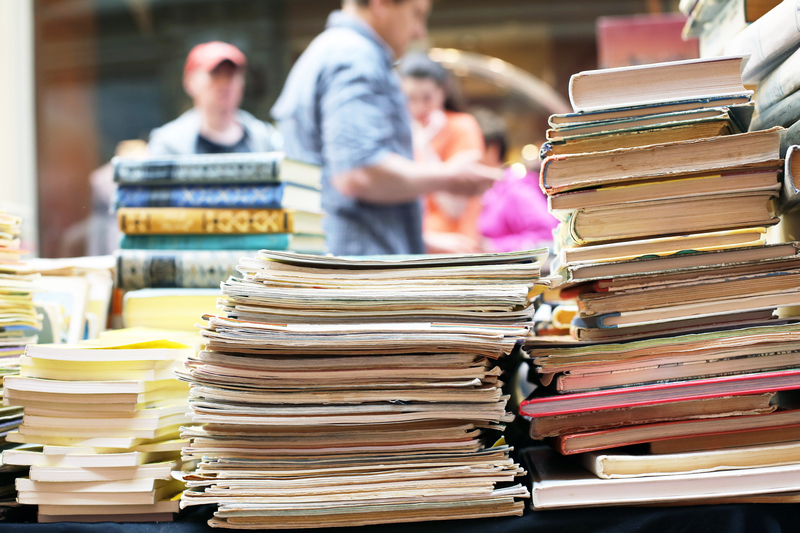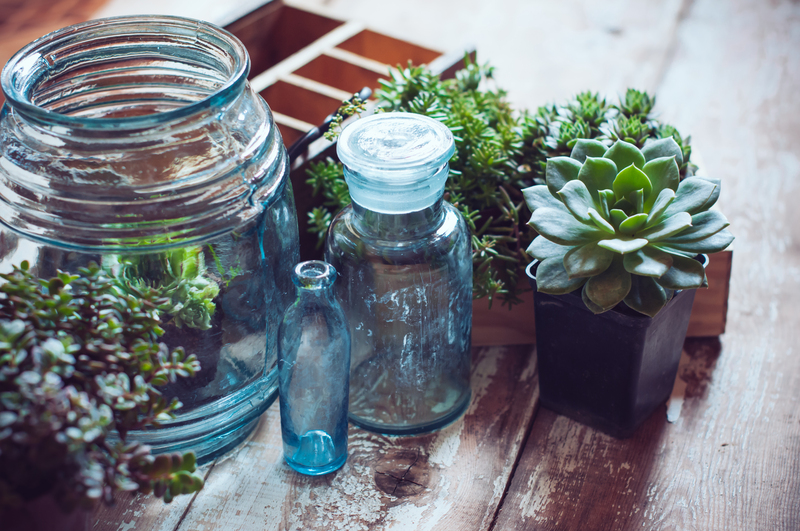Recycling for Kids: Simple Steps to Get Started
Recycling not only helps save the environment, but it also teaches children valuable habits they can carry into adulthood. Introducing recycling to kids doesn't have to be complex or boring. By incorporating fun, achievable steps, parents and teachers can turn eco-friendly behaviors into everyday routines.
In this comprehensive guide, you'll discover everything you need to know about getting kids started with recycling. From the basics of what recycling means to engaging activities and clever tips, your child's recycling journey begins here!
Why Is Recycling Important for Kids?
Teaching children about the environment and the importance of recycling is crucial for their development and the planet's future. Recycling benefits not only nature but also the wellbeing of communities by reducing waste, saving resources, and promoting cleaner surroundings. When children learn to recycle early, it builds a foundation of responsibility and environmental stewardship.
- Conserves natural resources (like water, trees, and minerals)
- Reduces landfill waste and pollution
- Lowers energy usage compared to producing new products
- Encourages creative thinking and problem-solving skills
- Fosters a sense of achievement and community pride

What Is Recycling? Explaining Recycling for Children
For kids, recycling means giving old things a new life instead of throwing them away. You can help your children or students understand by explaining that:
- Some items like paper, plastic, glass, and metal can be broken down and used again to make new products.
- Instead of making more garbage, recycling helps keep Earth clean.
- Everyone can play a part--even at a young age!
Simple Recycling Vocabulary for Kids
Helping kids learn key vocabulary makes the recycling process less confusing:
- Recycle: To use something old to make something new.
- Reuse: To use something more than once.
- Reduce: To use less of something to help the Earth.
- Compost: To turn food scraps into soil for plants.
- Landfill: A place where garbage is buried in the ground.
How to Start Recycling at Home: Simple Steps for Kids
Getting started with recycling at home or at school is easier than you think. Here are some easy steps for recycling for beginners that even young children can follow:
Step 1: Learn What Can Be Recycled
Check the rules in your area, but common recyclables include:
- Papers (newspapers, magazines, homework sheets, notebooks)
- Cardboard (cereal boxes, shipping packages)
- Plastics (bottles, tubs, and containers--look for the recycling symbol)
- Glass (jars, bottles--make sure they're clean!)
- Aluminum (cans, foil)
Teach kids to look for the recycling symbol (three chasing arrows) on products and packaging.
Step 2: Set Up a Recycling Station
Designate a recycling area in your home or classroom. This can simply be a few labeled bins or boxes in the kitchen, garage, or under the sink.
- Label each bin with pictures or words for easy identification.
- Use different colors for different materials (blue for paper, green for glass, yellow for plastic, etc.).
- Encourage kids to decorate the bins with recycled art to get them involved!
Step 3: Practice Proper Sorting
Even young children can be taught to sort recyclables. Show them how to:
- Empty bottles and containers before recycling.
- Remove caps and lids (check your local recycling rules).
- Rinse out food packaging to avoid contamination.
- Recycle items only if they're clean and dry.
Step 4: Make Recycling a Fun Family Activity
Turn recycling tasks into a game or challenge. For example:
- Who can sort recyclables the fastest?
- How many recyclables can you find in the house this week?
- Make a reward chart for consistent recyclers.
Tip: Positive reinforcement goes a long way. Celebrate your child's recycling achievements!
Fun Recycling Projects and Activities for Kids
Hands-on activities make teaching recycling for children both entertaining and memorable. Here are some creative ideas to spark their interest:
1. DIY Recycled Crafts
- Make robots from cereal boxes and bottle caps.
- Create planters using old milk cartons or plastic bottles.
- Design homemade instruments using cans or cardboard tubes.
Get creative--turning trash into treasure is the heart of upcycling!
2. Recycling Scavenger Hunt
Hide items around your home or yard that can be recycled. Give kids a checklist of recyclable materials and set them loose on a hunt!
3. Visit a Recycling Center
Seeing recycling in action can inspire kids. Arrange a tour of a local recycling facility so children can observe how materials are sorted and transformed.
4. Play Sorting Games
Use real items or pictures and ask kids to sort them into "Recycle," "Reuse," and "Trash" bins. Turn it into a race or team competition to amp up the fun!
5. Explore Online Recycling Games
There are many eco-friendly games online designed for children that teach the basics of recycling through interactive activities.
Teaching Kids to Reduce and Reuse, Not Just Recycle
Recycling is just one part of protecting our planet! Encourage children to also think about how they can reduce waste and reuse items in their everyday lives.
Easy Ways to Reduce Waste at Home
- Use reusable water bottles and lunchboxes.
- Say no to single-use plastics like straws and bags.
- Print on both sides of the paper for homework and drawings.
- Compost food scraps to cut down on trash.
- Encourage swapping toys or books with friends instead of buying new ones.
Common Mistakes Kids Make When Recycling
Learning to recycle properly is a process! Here are common mistakes to watch out for:
- Throwing dirty containers or greasy pizza boxes in the recycling bin.
- Mixing up recyclable and non-recyclable plastics (watch for recycling symbols and numbers).
- Including loose plastic bags--they usually need to go back to stores, not in home recycling bins.
- Not removing food residue or liquid before tossing things in the bin.
- Trying to recycle items that can't be processed, like electronics or batteries (these need special disposal).
Tip: Check your local recycling rules to avoid confusion!
How to Motivate Kids to Recycle Every Day
Building consistent recycling habits takes encouragement. Try these simple strategies to help children make recycling second nature:
- Be a role model--let your kids see you recycle every day.
- Praise and reward positive recycling behaviors.
- Explain why rules exist, instead of just saying "because I said so."
- Use stories, videos, or books about recycling heroes.
- Show real-life impacts, such as cleaner parks or less trash on the street.
Involve Kids in Community Recycling
- Join local clean-up events.
- Set up recycling drives at school.
- Encourage sharing their recycling knowledge with friends and family.
Being part of a bigger cause teaches kids that their efforts matter and encourages ongoing commitment.
Recycling for Kids: Interesting Facts and Trivia
- Aluminum cans can be recycled and put back on store shelves in as little as 60 days.
- Recycling one glass bottle saves enough energy to power a light bulb for four hours.
- Paper can be recycled up to seven times before the fibers become too short to use again.
- Plastics are usually marked with numbers 1-7 inside the recycling triangle symbol to show the type of plastic used.
- Cardboard can be recycled into new boxes, paper bags, or even furniture!
Share these fun facts with your children to spark their curiosity.
Extra Tips for Recycling with Young Children
If you're introducing recycling to preschoolers or very young children, focus on:
- Keeping things simple--- Start with just two bins: "Recycle" and "Trash."
- Supervising sorting until it becomes a habit.
- Turning everyday moments (like snack time) into recycling lessons.
- Reading picture books about the environment and recycling.

Books and Resources to Teach Kids About Recycling
There are plenty of educational resources available to make learning about recycling exciting and relatable:
- "The Adventures of a Plastic Bottle" by Alison Inches (follows a plastic bottle's recycling journey)
- "Michael Recycle" by Ellie Bethel (a fun superhero teaches recycling in his city)
- "One Plastic Bag: Isatou Ceesay and the Recycling Women of the Gambia" by Miranda Paul (real-life eco-heroes!)
- Online games and quizzes from National Geographic Kids or Recycle Now
Conclusion: Small Steps Make a Big Difference
Teaching kids about recycling is one of the most important lessons for a healthy future. With simple steps, creative activities, and a little encouragement, every child can develop habits that help protect our planet. Start with the basics, answer questions honestly, and make recycling a regular--and rewarding--part of your routine.
Remember: It's never too early (or too late!) to make a positive impact. The journey towards a greener future starts with you and your child--one recycled item at a time.
If you found this guide helpful, share it with other families or teachers interested in recycling for kids. Together, we can inspire a new generation of environmental champions!